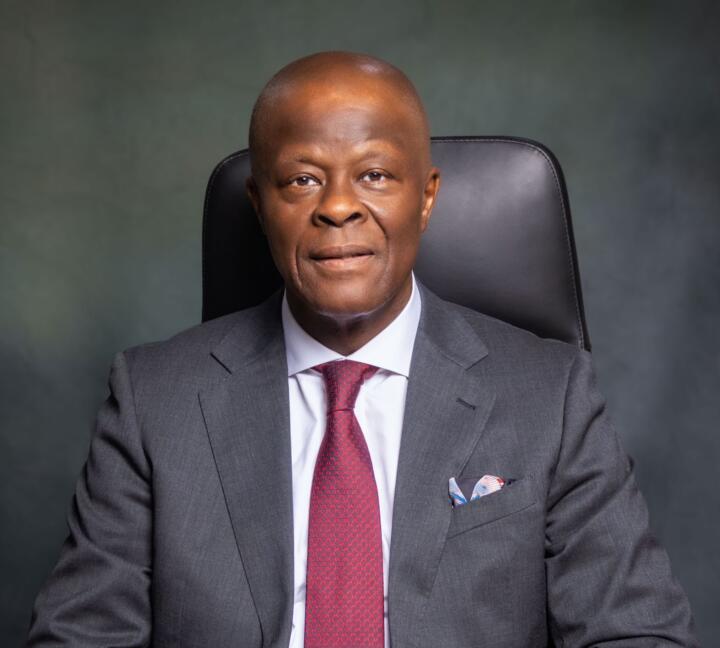Nigeria’s Minister of Finance and Coordinating Minister of the Economy, Wale Edun, has urged African nations to embrace bold, coordinated, and transformative economic reforms as a necessary pathway to unlocking sustainable growth across the continent. Speaking at a high-level continental forum focused on economic transformation, Edun stressed that Africa’s current pace of development is insufficient to meet the needs of its fast-growing population, and that governments must adopt policy measures capable of boosting productivity, improving revenue, and expanding investment opportunities.
According to Edun, the continent stands at a defining moment where strategic policy choices will determine whether African economies can fully harness their demographic advantages, natural resources, and technological potential. He noted that the global economic climate remains uncertain, marked by geopolitical tensions, volatile commodity prices, and inflationary pressures that continue to shape economic outcomes. For Africa to thrive amid these challenges, he said, nations must pursue reforms that strengthen macroeconomic stability, enhance competitiveness, and foster inclusive growth.

Edun emphasised that reforms in public finance, tax systems, and fiscal governance are central to building resilient economies. He argued that African countries must prioritise efficient revenue mobilisation, broaden their tax nets, and reduce leakages in public expenditure. By doing so, he said, governments will be better positioned to fund critical infrastructure, expand social services, and reduce reliance on external borrowing. He also highlighted the need to modernise tax administration through digital solutions that improve compliance and transparency.
Beyond fiscal reforms, Edun stressed the importance of improving the investment climate across the continent. He explained that Africa must create environments where private capital—both domestic and foreign—can thrive. This includes simplifying regulatory frameworks, reducing bureaucratic barriers, and protecting investor rights. He noted that economic growth is driven largely by private-sector activity, and that governments must adopt policies that encourage innovation, entrepreneurship, and industrial expansion.
In addition, Edun identified regional integration as a key pillar for Africa’s economic success. He said the African Continental Free Trade Area (AfCFTA) presents an unprecedented opportunity for African countries to expand their markets, reduce trade barriers, and build stronger value chains. However, he argued that the benefits of the agreement can only be fully realised if countries undertake reforms that enhance competitiveness, boost production capacity, and improve trade facilitation. He called on governments to invest in transport infrastructure, logistics, and digital trade systems to support intra-African commerce.
The Finance Minister also highlighted the role of technology in driving Africa’s economic transformation. He explained that digital adoption is opening new pathways for innovation in financial services, agriculture, education, and manufacturing. Edun urged African countries to prioritise investments in digital infrastructure, including broadband expansion, digital identity systems, and cybersecurity frameworks. These, he said, will create opportunities for young people and enable businesses to access markets more efficiently.
While acknowledging the progress many African nations have made in recent years, Edun noted that the continent still faces significant structural challenges, including limited industrialisation, inadequate power supply, food insecurity, and unemployment. He stressed that bold reforms—rather than incremental approaches—are needed to address these constraints. He cited Nigeria’s own reform trajectory as an example, pointing to recent decisions aimed at stabilising the foreign exchange market, enhancing fiscal discipline, and attracting investment.
Edun expressed optimism that African countries can transform their economies if leaders commit to long-term planning and evidence-based policymaking. He said the continent must focus on growth sectors such as agriculture, renewable energy, digital services, and manufacturing, which offer opportunities for value addition and job creation. He also encouraged governments to strengthen human capital development through investments in education, healthcare, and skills training, noting that a productive workforce is essential for sustaining economic reforms.
The minister emphasised that development partners and international financial institutions also have a role to play. He called for fairer global financial systems, debt relief initiatives where necessary, and increased access to concessional financing for African countries. He argued that Africa’s development ambitions cannot be achieved in isolation, and that global collaboration is key to tackling cross-border challenges such as climate change, migration, and food insecurity.
Edun concluded by urging African leaders to demonstrate strong political will and accountability in implementing reforms. He noted that the success of any policy depends on its execution, and that governments must prioritise transparency, anti-corruption efforts, and public engagement to build trust. He said bold economic reforms are not merely policy choices but moral imperatives, given the aspirations of millions of Africans seeking better livelihoods and economic security.
Stakeholders at the forum welcomed Edun’s call, noting that Africa’s future will depend on decisive leadership, strategic investments, and a collective commitment to transformation. They agreed that without significant reforms, the continent risks falling short of its potential, but with sustained efforts, Africa can position itself as a dynamic economic force in the global landscape.
Support InfoStride News' Credible Journalism: Only credible journalism can guarantee a fair, accountable and transparent society, including democracy and government. It involves a lot of efforts and money. We need your support. Click here to Donate
